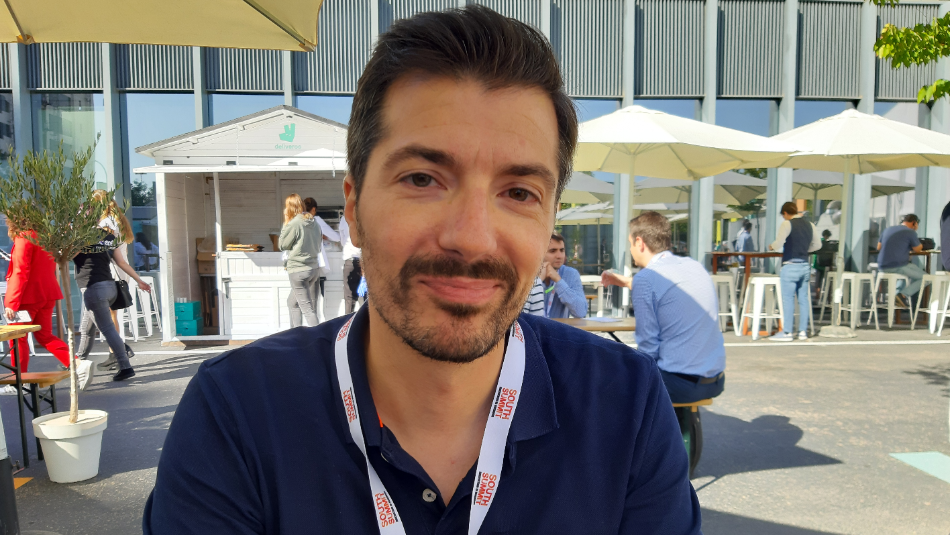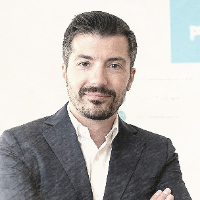Portuguese startup Consumers Trust aims to bridge the communication gap between consumers and companies by providing a much-needed forum for customers' complaints to reach businesses. Dreamed up a decade ago on the back of a lamentable chocolate cake experience, the company's platform has become a powerful site for both consumers and companies to complain and explain.
Consumers Trust operates Portal da Queixa (which translates to Complaints Site), a B2C platform for consumers to complain or opine about companies offering goods and services from FMCG companies to airlines or public services. It also operates as a B2B2C platform for brands to communicate with consumers, and includes a ranking of companies' performance generated by its customer user base.
It's this ranking that is the site's “unique sales proposition and a key reason for its continued and ever-growing success,” Consumers Trust CEO and co-founder Pedro Lourenço told CompassList at the recent South Summit in Madrid.
Ten years on since its launch, Consumers Trust's platform, named Portal da Queixa in Portugal and Libro de Quejas in Spain, has a user base of 350,000 consumers and 6,000 companies. The company is seeking €250,000 to €500,000 in seed funding to expand aggressively across Spain, which it entered in October, and to launch in South Africa and Italy in 2020, and in France, UK and Germany in 2020–21.
Companies were indifferent, aggressive
“After complaining about a chocolate cake I bought from a major supermarket chain that was off, both by phone and email, I was completely ignored,” Lourenço recalled. “At the time, there were not such influential social networks […] before us, there was no free consumer complaints service and there still isn't. I decided to set up a place where consumers could share their bad experiences and where brands could see what consumers thought of their service.”
Lourenço's idea has proven pertinent. Consumers today have more choice in terms of products and services, as well as a powerful tool in social media to name and shame brands, yet most retain a healthy distrust of companies. International research by CRM provider Salesforce found 54% of customers don’t believe companies have their best interests in mind, while 59% believe their personal information is vulnerable to security breach.
Lourenço founded Portal da Queixa in 2009 together with his wife and COO, Sónia Lage Lourenço, and CTO Vítor Vilela. “At the beginning, our main goal was to name and shame companies into taking action,” he recalled. “It was very hard because as we first approached brands with complaints from their own customers, initially they said they did not care about us and they would only reply to customers through their own channels.”
Several companies even tried to sue the platform in the Portuguese courts but were unsuccessful.
Social media boost
Although he had no formal IT training, Lourenço drew on the tech experience he had acquired through his digital agency Megaklique Multimedia, which he had established a year before founding Portal da Queixa. “It was very hard to build the portal alone and I relied on YouTube and Google tutorials. Plus, I had no financial backing,” Lourenço said.
Vilela joined the company early on as an intern while he was finishing his IT studies. “It suited me as I could not pay a salary and luckily he was sold on the project from the beginning,” Lourenço laughed.
With limited manpower and funding – until 2015, the company relied on just €50,000 in FFF funding – the platform was slow to get off the ground and Lourenço relied on asking friends and family to provide content.
That changed in 2013 with an overhaul that integrated social media into the platform and provided the possibility for brands to communicate directly with consumers. It was around this time too, that the site featured in a prime time spot on Portuguese TV; the user base began to grow, elevating the company satisfaction ranking and thus the site's leverage with corporates.
"After being shunned by brands who didn't listen to us […] they started to change their attitude,” Lourenço commented. “We did a lot of work writing articles, going to seminars, doing workshops, talking to the press and consumers; we changed the way brands see us and now they approach us, wanting to work with us as a way to show to consumers they are trustworthy. Today, in Portugal you even have brands using our logo in their communication.”
Building the business model
Despite the success, Consumers Trust still lacked a viable business model. Its platform monetized through advertising but was hamstrung by the conflict potential of running paid advertisements from companies with low satisfaction rankings on the site.
This changed in 2015 when Tim Vieira, star of the Portuguese version of US reality television show Shark Tank and a successful entrepreneur with holding companies in Portugal and Angola, became involved. Via his investment company, BraveGeneration, Vieira invested almost €200,000 in Consumers Trust, enabling it to scale in Portugal and expand into Spain. The investment also enabled the startup to employ five extra staff, including two in sales, plus back office, IT development and social media staff.
For Lourenço, the much-needed investment came without “the demands imposed by a VC”, but Vieira's most valuable contribution has been to build the company's business model. To fulfill Consumers Trust's primary objective of resolving consumer complaints, the platform remains free for brands and consumers. Instead, the company monetizes by providing brands access to its user data for publicity and analytical purposes. The platform also optimizes product advertising so that if, for example, a consumer makes a complaint about a hotel chain, other hotels' advertising reaches that consumer. Brands can also communicate with consumers using a favorable ranking as a marketing tool.
Agent for change
Consumers Trust's platform is achieving concrete improvements in the way companies relate to their consumers. After receiving negative feedback on Portal da Queixa, major Portuguese telecom and electricity companies changed their services. In a recent pre-election television interview, Portuguese Prime Minister António Costa mentioned the platform in the context of his belief in the public's opinion when they complain about public services.
The positive impact of Consumers Trust has also led to Lourenço being designated by the European Commission as European Consumer Rights Ambassador. “They invited me to be the ambassador for consumer rights in Portugal and the whole of Europe because of our job in society doing a good job protecting consumers' rights: it was not just a proud moment for me but great for Consumers Trust too as we can provide information to the consumers straight from the horse's mouth,” Lourenço concluded.













